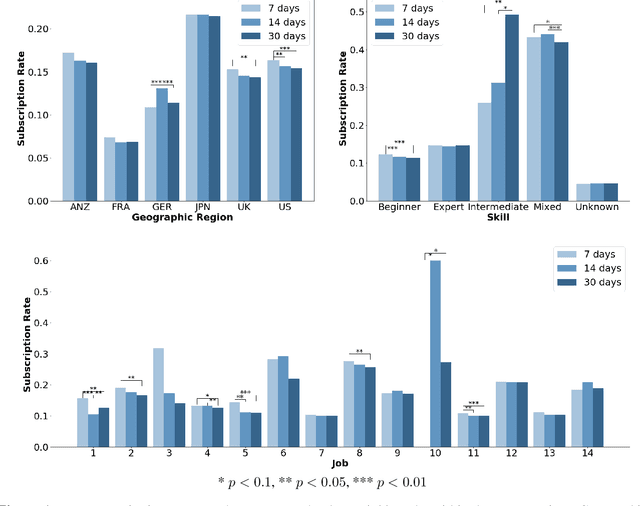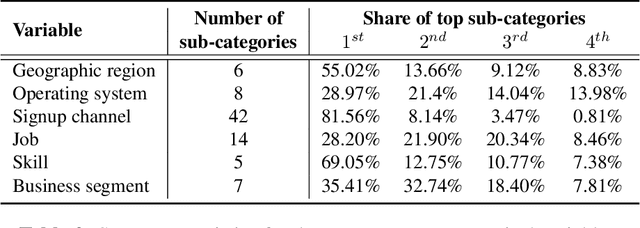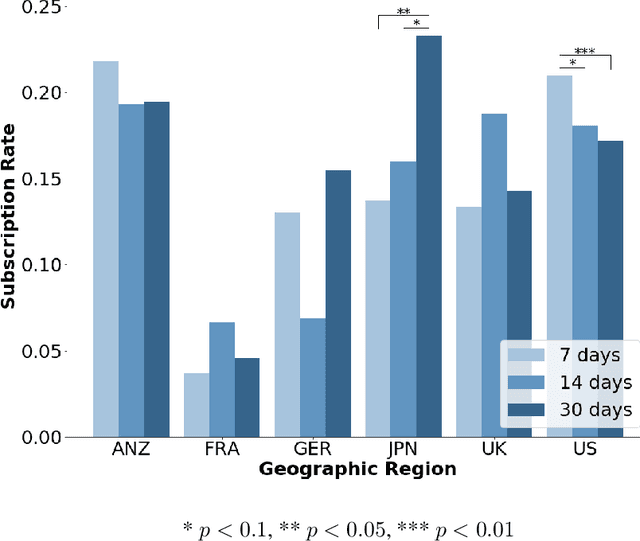Design and Evaluation of Personalized Free Trials
Paper and Code
Jun 24, 2020



Free trial promotions, where users are given a limited time to try the product for free, are a commonly used customer acquisition strategy in the Software as a Service (SaaS) industry. We examine how trial length affect users' responsiveness, and seek to quantify the gains from personalizing the length of the free trial promotions. Our data come from a large-scale field experiment conducted by a leading SaaS firm, where new users were randomly assigned to 7, 14, or 30 days of free trial. First, we show that the 7-day trial to all consumers is the best uniform policy, with a 5.59% increase in subscriptions. Next, we develop a three-pronged framework for personalized policy design and evaluation. Using our framework, we develop seven personalized targeting policies based on linear regression, lasso, CART, random forest, XGBoost, causal tree, and causal forest, and evaluate their performances using the Inverse Propensity Score (IPS) estimator. We find that the personalized policy based on lasso performs the best, followed by the one based on XGBoost. In contrast, policies based on causal tree and causal forest perform poorly. We then link a method's effectiveness in designing policy with its ability to personalize the treatment sufficiently without over-fitting (i.e., capture spurious heterogeneity). Next, we segment consumers based on their optimal trial length and derive some substantive insights on the drivers of user behavior in this context. Finally, we show that policies designed to maximize short-run conversions also perform well on long-run outcomes such as consumer loyalty and profitability.
 Add to Chrome
Add to Chrome Add to Firefox
Add to Firefox Add to Edge
Add to Edge